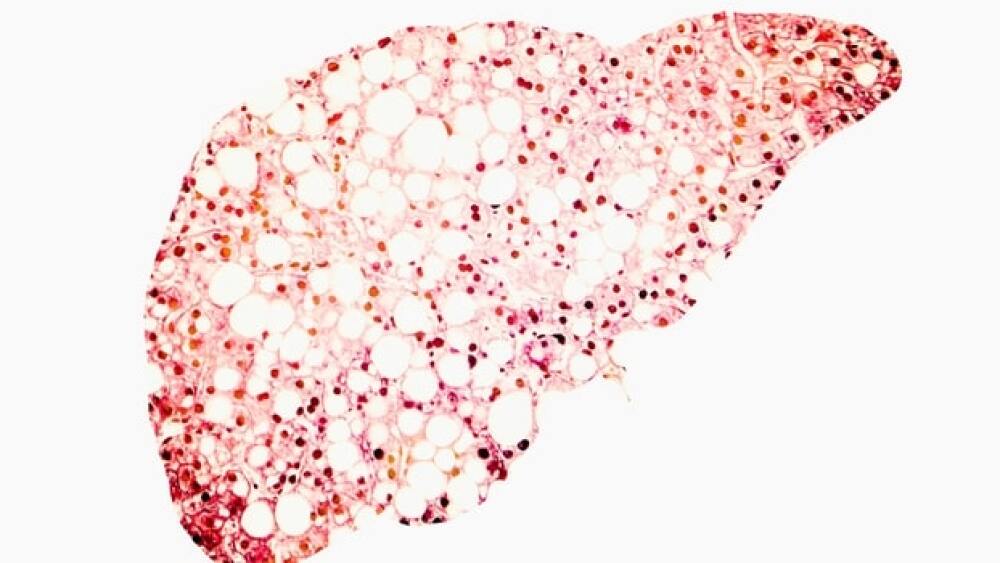Sixty-three percent of patients met the primary endpoint of a 2-point or greater improvement in disease severity without worsening of fibrosis.
San Francisco-based 89bio reported positive results from its Phase Ib/IIa proof-of-concept study evaluating the use of pegozafermin (previously known as BIO89-100) for the treatment of nonalcoholic steatohepatitis (NASH).
Currently, there are no U.S. Food and Drug Administration (FDA)-approved medications available to treat NASH, making it an important target for new biotherapies. Pegozafermin, a fibroblast growth factor 21 (FGF21) analog, is being evaluated in the Phase IIb ENLIVEN trial in NASH and the Phase II ENTRIGUE trial for the treatment of severe hypertriglyceridemia (SHTG).
FGF21 is an endogenous hormone that can act directly on the liver and shift whole-body metabolism to a healthier state by modulating drivers of NASH such as glycemic control, steatosis, inflammation and fibrosis. Recent therapeutics aimed at the treatment of NASH have begun to utilize FGF21 for its ability to broadly impact metabolism and for the prevention of fat build-up in the liver.
In the open-label expansion cohort of 20 patients with F2 and F3 stage NASH and biopsy-confirmed fibrosis, 63% of patients met the primary endpoint of a 2-point or greater improvement in disease severity without worsening of fibrosis. The 2-point improvement in disease severity required a 1-point improvement in either ballooning or inflammation. Additionally, at the end of the 20-week treatment with the therapy, patients experienced significant positive effects on glycemic control, lipids and body weight and showed clinically meaningful and significant changes across key non-invasive tests associated with fibrosis, risk of fibrosis or NASH resolution.
“The totality of the pegozafermin data is promising with clinically meaningful changes on histology endpoints, impressive changes on all non-invasive assessments looking at total liver health, as well as significant changes versus baseline in cardiovascular markers and glycemic control,” said Rohit Loomba M.D., MHSc, director of the NAFLD research center, University of California San Diego and primary investigator of the study. “NASH is a complex disease and addressing overall liver health together with treating the underlying drivers of the disease is important in considering therapeutic options for our patients.”
In the total 83 patients that have been enrolled in the study, pegozafermin is generally well-tolerated and safe, with the most commonly treatment-related adverse events reported being diarrhea, vomiting and injection site reactions. 89bio Chief Medical Officer Hank Mansbach, M.D. said the company will analyze data from the ongoing ENLIVEN trial which will evaluate the drug in over 200 patients with NASH, with a follow-up biopsy after 24 weeks of treatment. The company also expects to report results of the drug’s efficacy in SHTG patients in the first half of 2022.
NASH is a challenging disease to manage and without proper treatment, it can evolve to end-stage liver disease, cirrhosis and liver cancer. Alongside 89bio’s promising trial results, CytoDyn also recently reported positive Phase II trial results using therapeutic leronlimab in the treatment of NASH. Leronlimab binds to chemokine receptor 5 (CCR5), which helps to inhibit a pro-inflammatory environment and further fibrosis. Aligos Therapeutics and Merck & Co. also recently announced that they have expanded an ongoing collaboration agreement to discover and develop oligonucleotide therapies for NASH.





